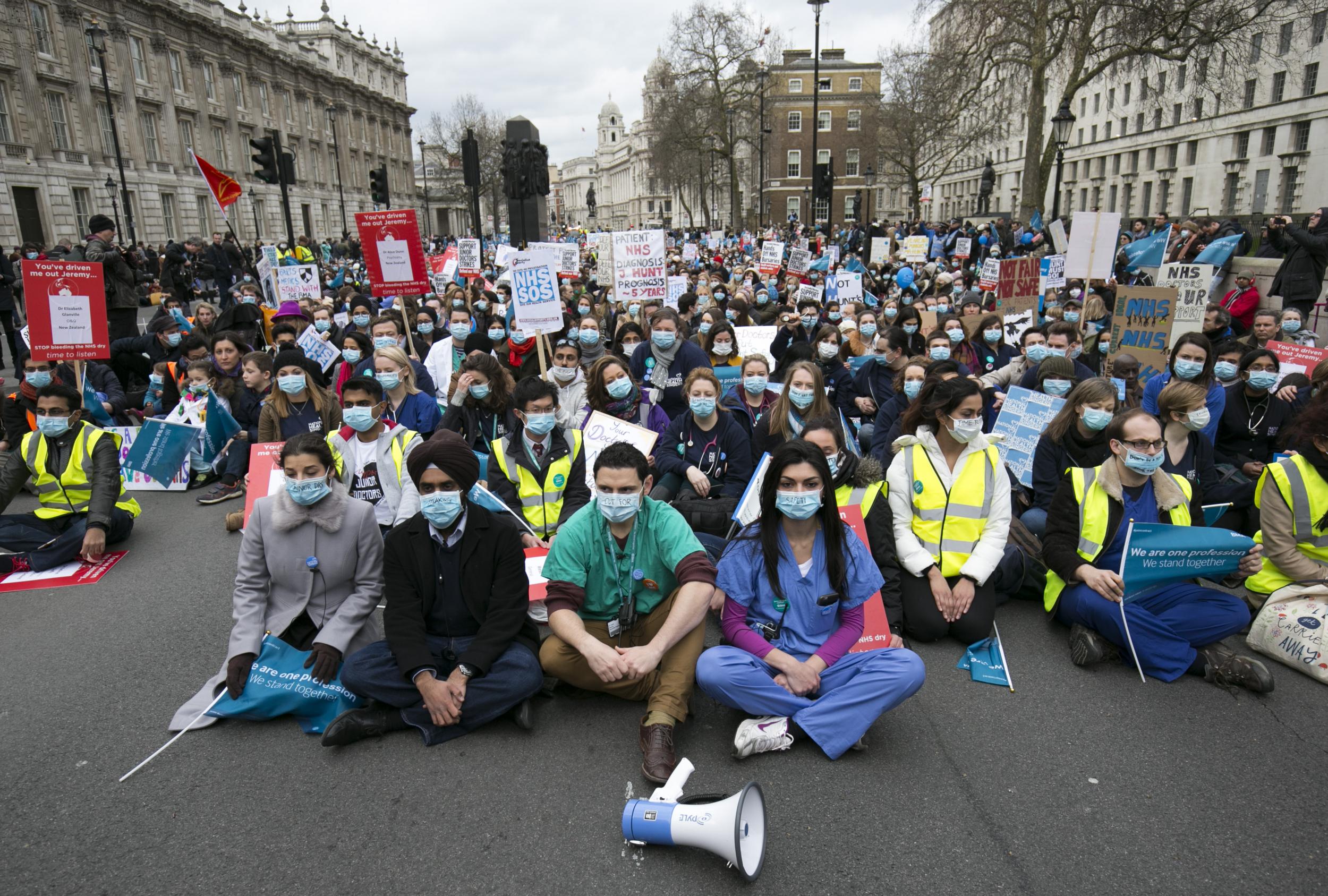British public supports all-out strike by junior doctors, survey reveals
And nearly two-thirds of people support a partial strike

Your support helps us to tell the story
From reproductive rights to climate change to Big Tech, The Independent is on the ground when the story is developing. Whether it's investigating the financials of Elon Musk's pro-Trump PAC or producing our latest documentary, 'The A Word', which shines a light on the American women fighting for reproductive rights, we know how important it is to parse out the facts from the messaging.
At such a critical moment in US history, we need reporters on the ground. Your donation allows us to keep sending journalists to speak to both sides of the story.
The Independent is trusted by Americans across the entire political spectrum. And unlike many other quality news outlets, we choose not to lock Americans out of our reporting and analysis with paywalls. We believe quality journalism should be available to everyone, paid for by those who can afford it.
Your support makes all the difference.Nearly half of the British public supports the planned all-out strike by junior doctors, according to a new YouGov survey.
The survey found 45 per cent backed a full strike, with 38 per cent opposing it. A further 15 per cent of people surveyed were either neutral or unable to answer.
A full withdrawal of labour by all junior doctors is planned between the hours of 8am and 5pm on 26 and 27 April, which will be the first time in the NHS's history that they will refuse to provide emergency cover. Consultants and other medical staff will still be working during the strike.
YouGov found the junior doctors' action was particularly popular among Labour voters and Scottish people, with 70 per cent and 61 per cent respectively of these groups backing a full strike.
When asked who they thought was to blame for the dispute between the British Medical Association and the Government, 45 per cent of people said they blamed the Department of Health, with only 12 per cent pointing the finger at the BMA. A further 30 per cent said the blame was equally shared.
Partial strike action, with staff covering for emergencies, is also planned to run from tomorrow until Friday. According to YouGov, 59 per cent of people support this form of industrial action, compared with only 23 per cent who oppose it.
Junior doctors have been angered by the Government's attempts to introduce a new contract as part of plans to make the NHS a comprehensive seven-day operation. They say the new contract will lead to a cut in pay and an increase in working hours, endangering patients.
This week, the Government's own review of the contract said it would "impact disproprotionately" on women's pay, but described this as a "comfortably justified" means to an end.
Writing for The Independent, cardiologist Dr Rachel Clarke said: "The Department of Health hasn’t even tried to hide the discrimination at the heart of its new contract.
“In other words, for [David] Cameron, the alleged champion of women, women’s salaries are mere collateral damage.”
Pollsters had previously warned that withdrawing emergency care could damage the junior doctors' cause. Anna Quigley, of pollsters Ipsos MORI, told The Independent: "if emergency care is not provided during strikes, the public is much less likely to support them."
However, YouGov's new findings suggest that the public will continue to support the British Medical Association's attempts to secure a more reasonable contract.
Johann Malawana, chair of the BMA's Junior Doctors Committee, said: "We deeply regret the disruption this will cause and this is not a decision we have taken lightly.
"Junior doctors have no other choice - the new contract is unfair and would be bad for the delivery of care, and the NHS, in the long term.”
Join our commenting forum
Join thought-provoking conversations, follow other Independent readers and see their replies
Comments